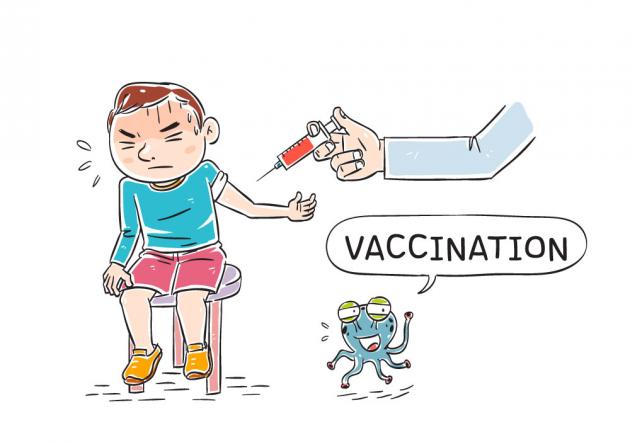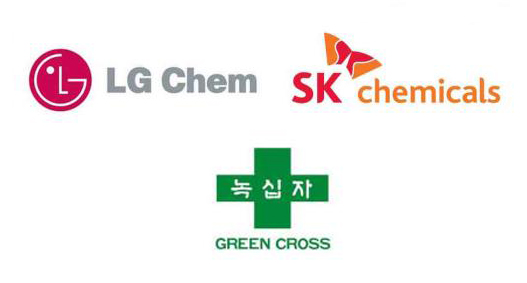Government and business officials are trying hard to make Korea an independent country in vaccine supply.
Vaccine shortage crises, including the H1N1 outbreak, an influenza virus, in 2009, and the annual polio vaccine shortage have emphasized the need to develop vaccines.

During the “2009 influenza outbreak,” the head of the Korea Centers for Disease Control & Prevention (KCDC) 질병관리본부 had to visit multinational pharmaceutical companies to ask for vaccines. The influenza vaccine had caused great inconvenience to patients requiring vaccine because of the supply-demand imbalance before Green Cross developed it in 2009.
For polio vaccines, dependency on import is worse. The KCDC has postponed the mandatory inactivated poliovirus vaccination (IPV) for children aged four and above, twice this year.
The reasons for global polio shortage are varied, the ministry said, citing manufacturing problems abroad leading to declining supply as well as a shift in production from single to combined vaccines. Korea imports all of its polio vaccines.
“The KCDC initially delayed the 4-to 6-year-old IPV vaccination to October. However with the domestic vaccine shortage continuing, we postponed it again to next February," a KCDC official said.
After a repeated shortage of vaccines, the government launched the “Global Vaccine Product Support Team” under the Ministry of Food and Drug Safety 식품의약안전처 in 2010.
The plan called for the government to support the development of practical and original technologies for vaccine improvement and the development of high-cost, high-challenging, high-risk vaccines by participating in new drug development projects, which includes large-scale research funding. The goal was to raise the self-sufficient ratio of vaccine from the present 30 percent to 70 percent by 2020.
The government also planned to promote long-term contracts with pharmaceutical companies to develop pandemic and counterterrorism vaccines, which are difficult to develop due to unpredictable outbreaks and profits.
Currently, Korea manufactures only half of the 18 national mandatory vaccines. Vaccines developed by Korean companies include those for hepatitis B, Haemophilus influenza type b (Hib), chickenpox, influenza, hemorrhagic fever with renal syndrome, typhoid, Japanese encephalitis, tetanus-diphtheria (TD).
However, domestic pharmaceutical companies remain in the research and development phase when it comes to other import-dependent vaccines.

Green Cross 녹십자 plans to release Green Cross TD Vaccine Prefilled Syringe by the end of this year and is likely to enter the completion phase of their research on tuberculosis vaccine.
LG Chem LG화학 has started clinical trials of pneumococcal vaccine (PCV) and the development of IPV.
SK Chemicals SK케미칼 has developed Skypheumo, a pneumococcal conjugate vaccine (PVC), but is tied up in court after a lawsuit by Pfizer for allegedly violating the latter’s patent. Although SK Chemicals won the suit, Pfizer appealed the decision, and it is uncertain when the court will make its final ruling.
However, the company recently received the sales approval for Skyzoster, a shingles vaccine, which became the second vaccine to win approvals to treat shingles worldwide, following Merck’s Zostavax. Although the vaccine is not a national mandatory vaccine, an estimated 620,000 patients were suffering from shingles in 2013.
Quratis 큐라티스, a venture set by Yonsei University’s health system, has applied for the phase 2 of clinical trials in Korea for its tuberculosis vaccine for adults and is expected to produce and sell its vaccine in the global market next year.
However, the government’s goal to reach 70 percent vaccine self-sufficient ratio by 2020 is still uncertain to attain, according to a report submitted by the ministry to Rep. Yang Seung-jo 양승조 of the ruling Democratic Party of Korea for the parliament’s administrative audit of the agency on Oct. 17.
“Despite some improvements, 10 national mandatory vaccines, three non-mandatory vaccines, and a vaccine regarding pandemic and counter-terrorism are still dependent on imports,” Yang said. “Domestic pharmaceutical companies are developing one or two vaccines a year, but this is too slow.”
If the development pace continues as it is now, it is unclear if Korea will reach the self-sufficiency goal, Yang added.
To support vaccine development, Yang and fellow lawmakers are pushing for an amendment that will establish a government-led public vaccine development and support center supervised by the Ministry of Health and Welfare.

